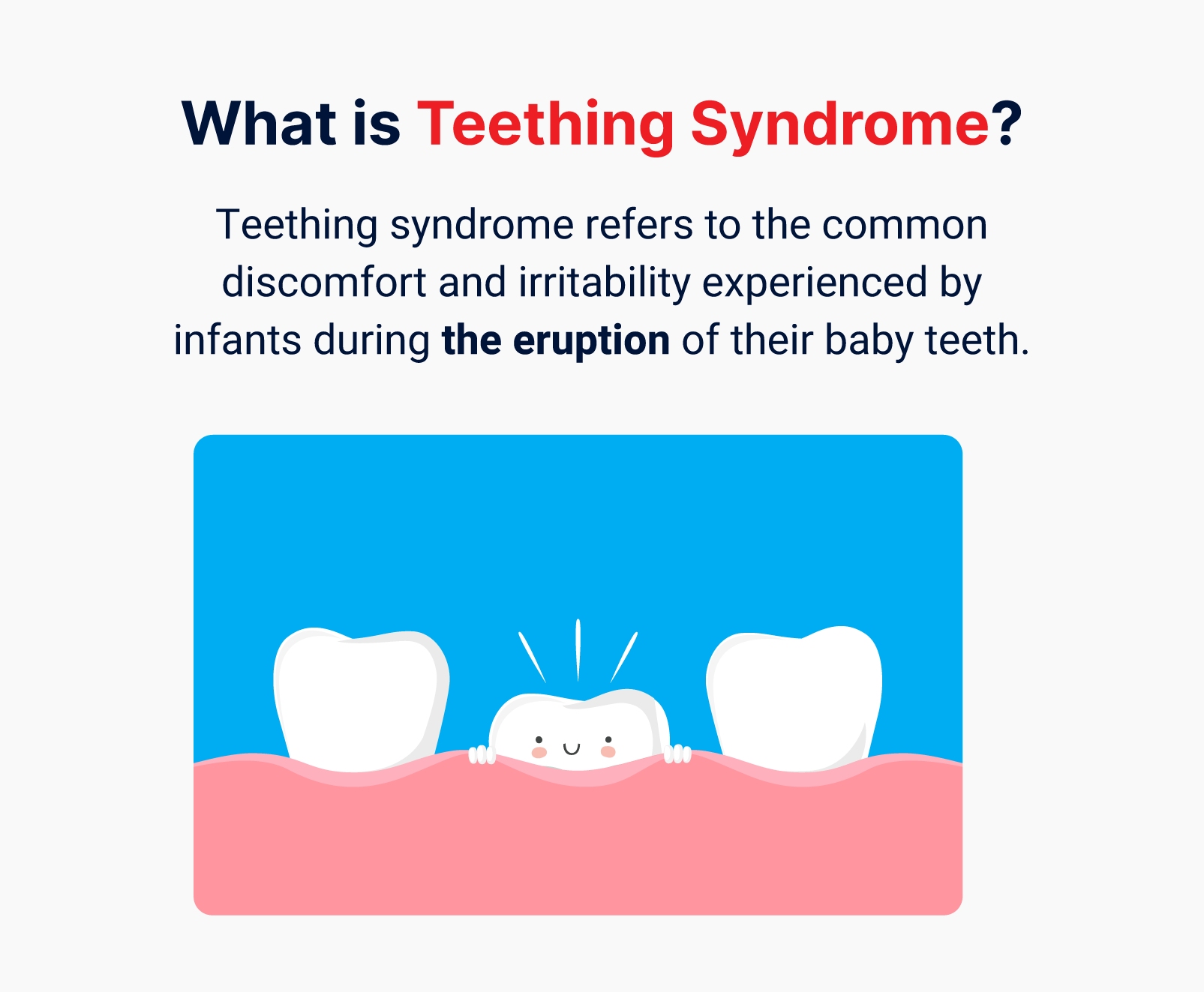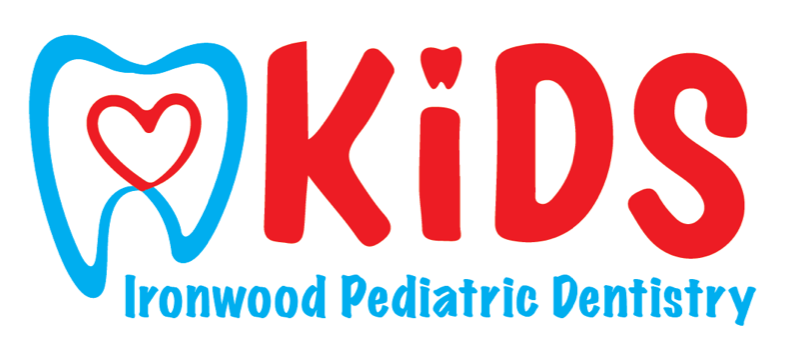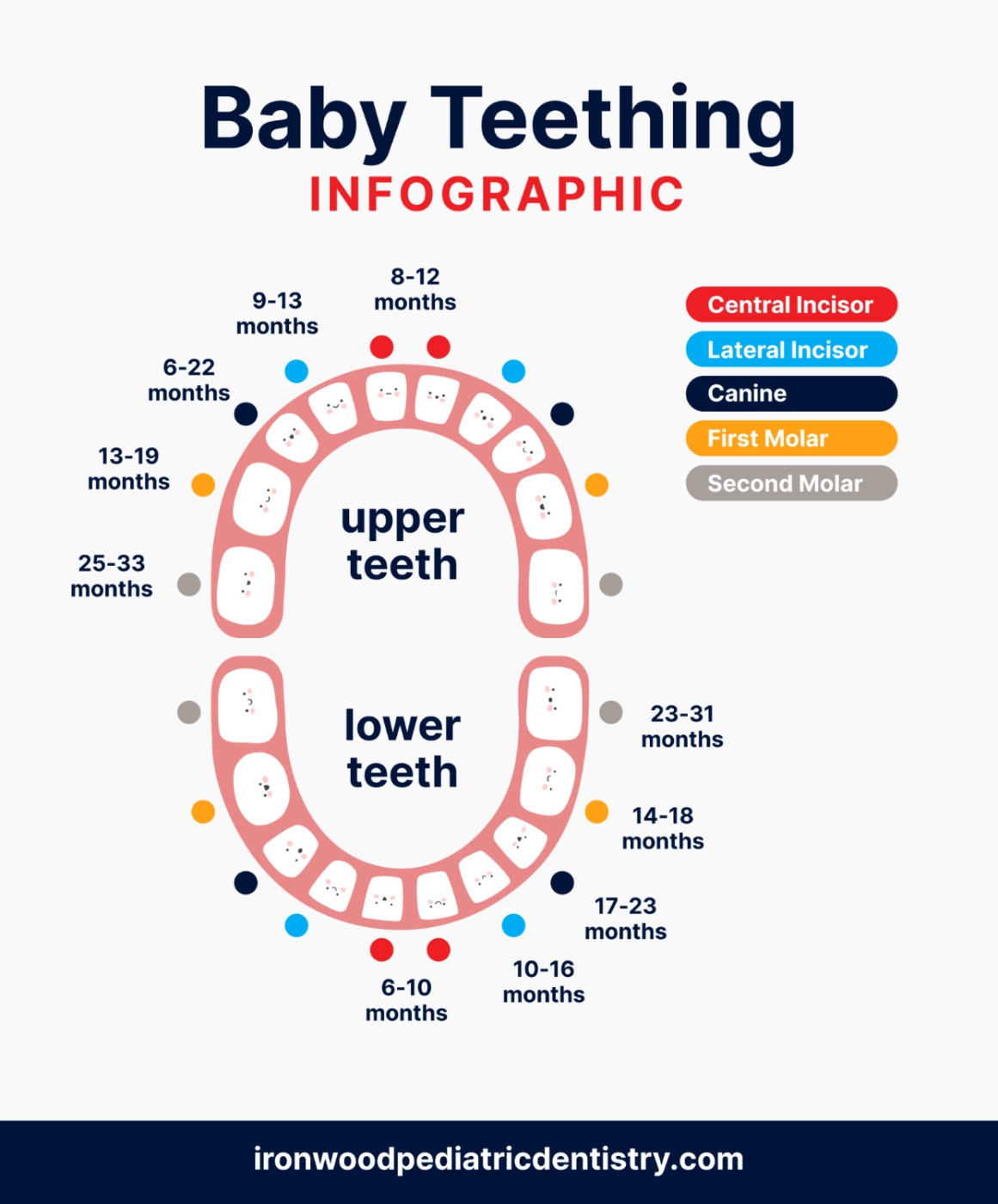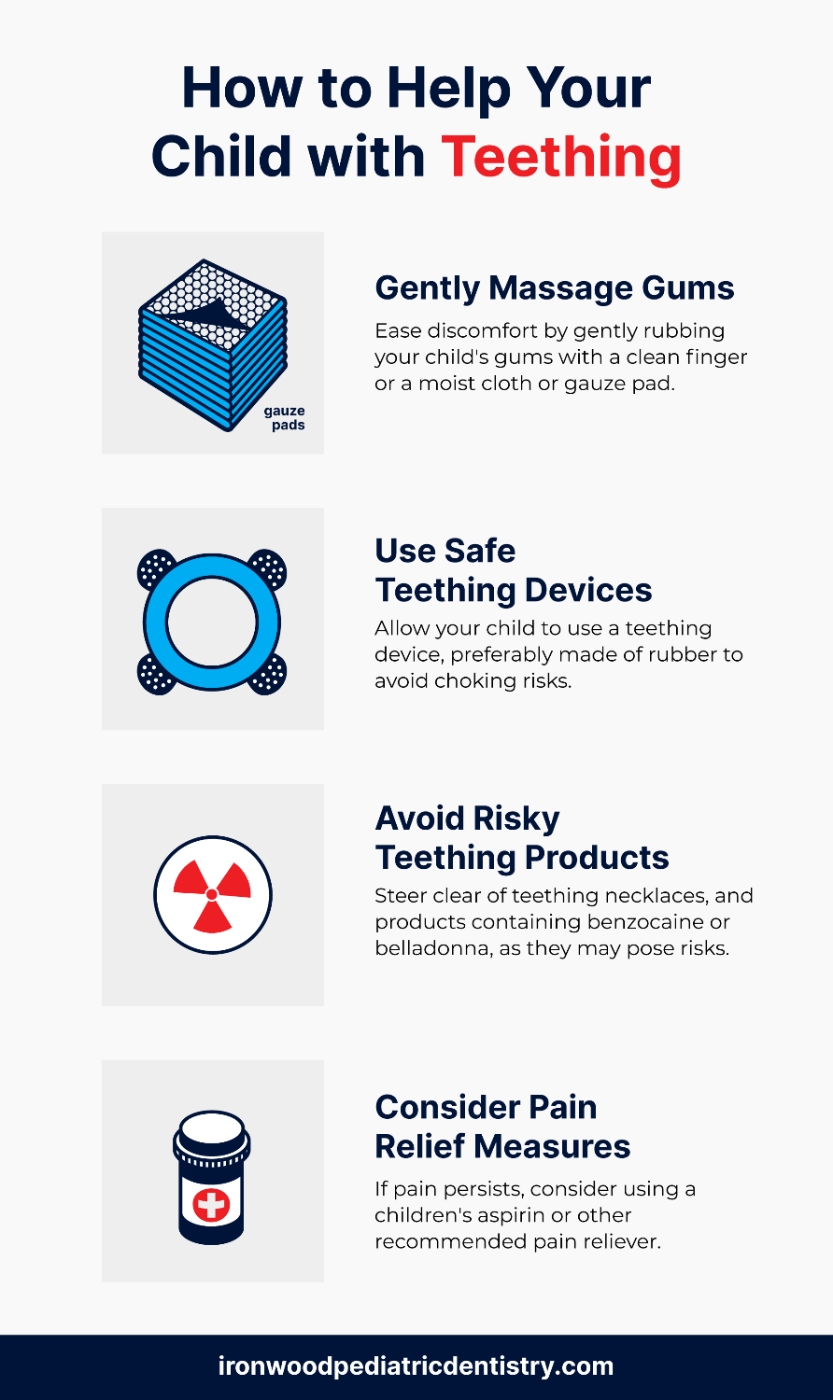Tooth Eruption Chart
Home Pediatric Dentistry Tooth Eruption
Seeing your child’s first baby teeth emerge is something that every parent remembers. What can dampen the joy of that moment, though, is the discomfort that your child can experience while it is happening.
Here we discuss baby tooth eruption, also known as teething syndrome: what it is, what it means to your child’s oral growth and development, how you can help your child through it, and ways your Scottsdale pediatric dentist can help.
What is Teething Syndrome?
Your baby is born with a full set of teeth below their gums. These are known as the primary teeth or deciduous teeth. Sometime during your baby’s first year, these teeth will start to erupt, or break through, their gum line.
Teething syndrome is the formal name for what is commonly known as “teething.” It is the natural process that babies and young children experience as their teeth cut through their gums.

When Do Baby Teeth Begin to Erupt?
Usually, you will first see your child’s teeth begin to emerge as early as six months of age, starting with the lower central incisors. The rest of the baby teeth will follow after the central incisors emerge. Most children will have their entire set of 20 baby teeth by the time they reach three years of age. The baby tooth eruption chart and table below show the positions of baby teeth, and the stages of tooth development.
Tooth Eruption Chart
Some things to remember:
- Per the tooth eruption chart, once baby teeth eruption begins, four teeth will ordinarily erupt every six months until all have emerged.
- Usually, baby teeth erupt in pairs on the same (upper or lower) level.
- Upper and lower teeth of the same kind, like molars, do not always emerge at the same time. Lower teeth will typically erupt a little earlier than their upper counterparts.
- Girls will usually experience baby tooth eruption a little before boys do.
What are the Signs of Teething?
Teething can cause pain and discomfort in babies. The gums around their erupting teeth may be red, swollen and tender.
Other baby teething symptoms include:
- Fussiness and irritability
- Trouble sleeping
- Loss of appetite
- Chewing behaviors
- Mild increase in body temperature, not more than 100 degrees Fahrenheit.
If any of these symptoms are present along with teething, they could indicate a more serious condition in your child’s mouth. If you see them, you should call your child’s doctor:
- Fever above 100 degrees
- Vomiting
- Rash
- Diarrhea
The Importance of Caring for Baby Teeth
The temporary nature of baby teeth can lead some parents to think that caring for them is not important because they will all eventually fall out, anyway. There are several reasons, though, to avoid this thinking and to give your child’s baby teeth the same care as for their permanent teeth later on.
Healthy baby teeth give your child the following important advantages early in life:
- They promote good nutrition and digestion by allowing the proper chewing of food.
- They contribute to normal facial shape and to proper speech development.
- Healthy baby teeth contribute to the proper eruption of permanent teeth into their proper position.
The last point above is important because, between the ages of 6 and 12, the falling out of your child’s baby teeth overlaps with the path of eruption of the permanent teeth. Baby teeth that fall out early because of tooth decay cannot fulfill their secondary role of allowing for proper spacing of the permanent teeth when they come up.
How You Can Help Your Child with Teething
Teething is a natural process that unavoidably causes your child some discomfort and even mild pain. You cannot make it a pleasant experience, but there are some things you can do to help ease the symptoms, such as:
- Gently rubbing the gums with a clean finger or a moist cloth or gauze pad.
- Letting your child use a teething device, preferably one made of rubber. Teething devices made of other materials can pose a risk of choking. We recommend avoiding devices like teething tablets or amber teething necklaces, and to not use benzocaine or belladonna gels.
- If pain symptoms are significant and massaging does not seem to help, using a children’s aspirin or other pain reliever can also provide pain relief.
When Should You Begin Brushing and Flossing Baby Teeth?
There is no recommended age for when you should start brushing your child’s baby teeth. Instead, you should begin a twice-daily tooth care routine for your child as soon as the baby teeth erupt.
- Use a soft-bristle brush with a fluoride toothpaste.
- Begin by using a small amount of toothpaste, no larger than a grain of rice.
- At about age 3, you can increase the amount of toothpaste used to the size of a pea.
- Although many brands of children’s toothpaste can be swallowed, we recommend that you begin training your child to spit out excess toothpaste as soon as possible, around the age of 3.
In addition to using a fluoride toothpaste, you can add fluoride to your child’s diet to strengthen tooth enamel in the baby teeth. The easiest way to do this is to add a small amount of tap water to his or her diet as soon as he or she begins to eat solid food. Tap water is almost always fluoridated while bottled water is usually not, so tap water is a convenient, and free source of some extra fluoride.
You can begin flossing for your child as soon as any two teeth have erupted sufficiently that they touch. This usually happens some time between the ages of 3 and 6.
Baby Teeth and Dental Visits
The American Academy of Pediatric Dentistry and the American Academy of Pediatrics recommend that you take your child to see a dentist no later than his or her first birthday. It is also a good idea, if you can, to choose a regular pediatric dentist as soon as possible. A dentist who is more familiar with your child’s oral development over time can provide early diagnosis of issues that may arise in the future, and can make visits to the dentist’s office less stressful.
We can also apply a fluoride varnish to your child’s baby teeth to strengthen them still further against tooth decay.
Teething Care for Your Child in the Scottsdale Area
At Ironwood Dental, we are pediatric dentists first. We have specialized training and years of experience helping children like yours at all stages of their dental development, from eruption of the first baby tooth through the last permanent tooth eruption, plus regular checkups, cleanings, and even orthodontics.
You can trust our child dentists to be your child’s “home dentists” for as long as you live in Scottsdale or its surroundings. It all begins with scheduling your child’s first dental consultation by calling us at 480-422-4544.
You can also reach us online if you have a question or prefer to set up an appointment that way.


